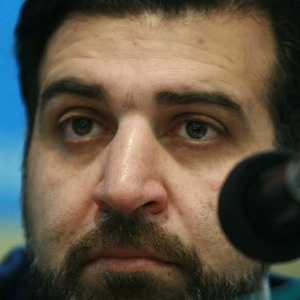Iran and the US are not eager to change the course on their relation
An interview with Seyed Sadeq Kharrazi, the former Iranian ambassador to France

The recent US presidential election was a new phenomenon in every aspect. Do you see it as revolutionizing the political decision making of the US or was it simply rooted in American society and its concerns?
As Alexis De Tocqueville has said, the social and political situation of the US is totally different from Europe. In America, the social and political unrest becomes evident in elections but in Europe, the political and social unrest finds its way in social revolutions. I do not think that Obama’s election could be called a revolution. But it would certainly lead to structural changes in the US.
The message of the recent US election was the death of Reaganism ideology. It means ending the Reaganist conservatism inside the US and ending traditional neo-conservatism abroad. So Obama would face two serious challenges at the beginning of his presidency: One is changing the old conservative structure of the state; and second is establishing a new structure in the US political system.
What would be the top priorities of the new US government on economic, political and security aspects? How would this government look at foreign policy and national security challenges?
I believe that Obama and the democrats are decisively going to tackle the financial crisis. They advocate multilateralism in global economy, and more strict regulations on national economy. But the elites of the US economic system do not feel threatened by Obama and his policies. So he would have the opportunity to work on his plans. He would also be using economic diplomacy in the world.
How do you see the future relations of the US and Iran in such a situation? Would the US continue its wrathful and paradoxical policies on foreign relations or a change of policy is to be seen during Barack Obama’s presidency?
The behaviors of both countries are totally ideological; and this trend is seen most on their foreign policy strategies. Different groups like Zionist lobbies, Arab lobbies, and regional adversaries of Iran are all defining their own existence in continuation of hostility between Iran and the US.
By exaggerating its security concerns, Israel is cheating on the US to turn the page to its own interests. The Arab lobbies are also trying to kill any chance of normalization of relations between the US and Iran. They know that normalization of this relation would make a distance between the Arab countries and the US; and they do not want it to happen. Other countries in the region –like Turkey and Pakistan- have also taken advantage of the problems between the US and Iran.
Having all these in mind, one would conclude that the framework of the US foreign policy is not going to change. Only the styles may change. Obama would act carefully to bring balance to the international community. I believe that the will to change the course on US-Iran relations does not exist.
At the same time, I should emphasize that Iran should be very careful. Exploiting the international sanctions is soon going to become the main part of the US foreign policy; and Iran should pay close attention to it. There are more than a hundred experts working on the US foreign policy during Obama’s presidency; and there are numerous lobbies trying to insert influence on these policies. So Obama’s America would be different from Bush’s America only if we invest and work on it. We should be realistic and we should know which way we are going.
Iran is not just an ordinary country. It has unbelievable capacities. The new outlook of the US during Obama’s presidency can be a way of understanding global potentials and Iran can be a part of that.
The truth is that solving the problems between Iran and the US needs a mutual understanding. A three decades old crisis cannot be solved overnight. The most important step that the US can take n this regard is putting an end to confrontation with Iran, freeing Iran’s blocked assets and ending the sanctions imposed on Iran. In all other areas, there is the potential of negotiation between the two countries. In fact, Obama’s government can have great interactions with a regional power like Iran.

